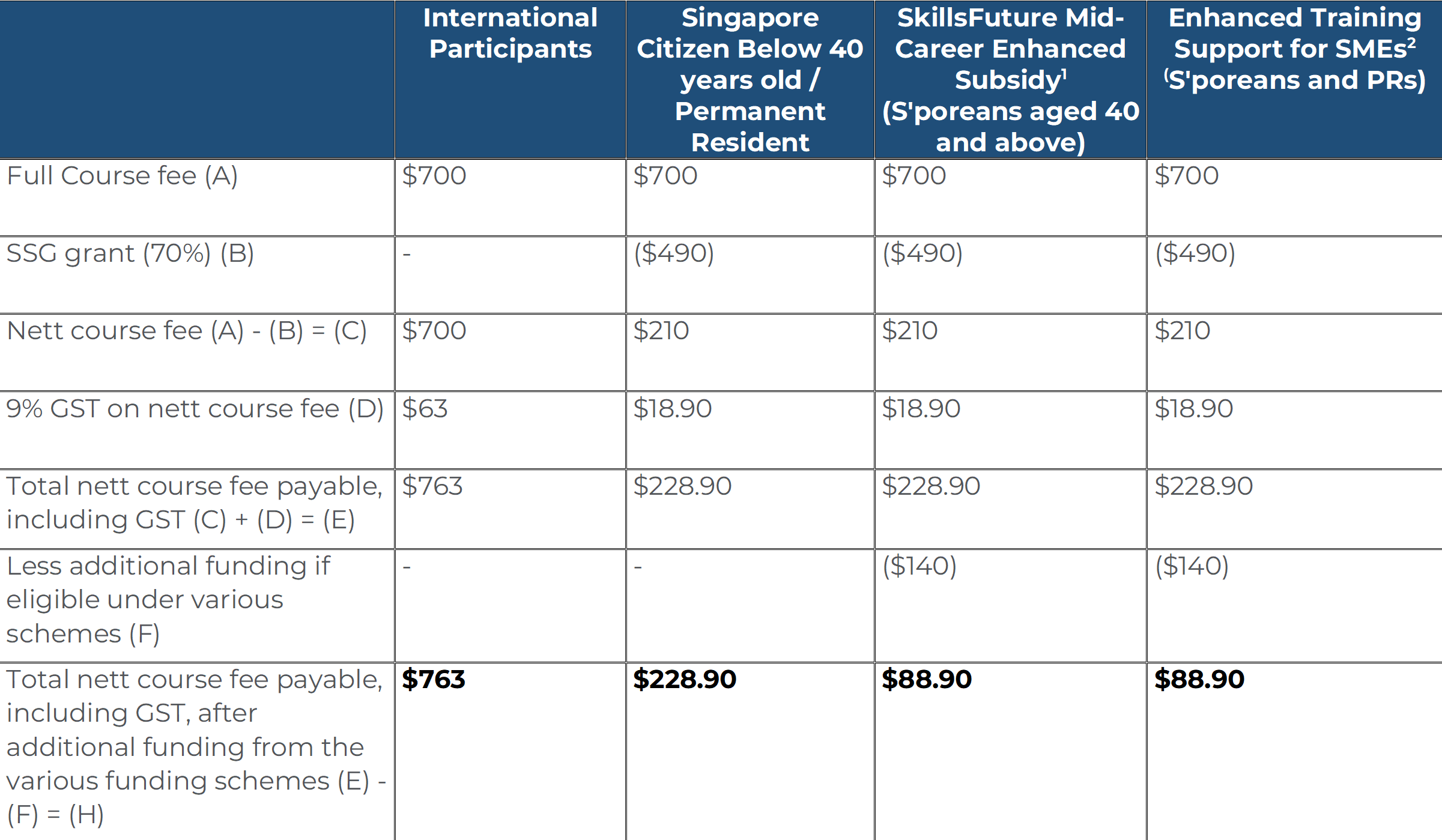Dates: 29 April 2025, 15 September 2025
Level: Basic
Duration: 1 day
Venue: Singapore University of Social Sciences
The "Essentials of ESG Risk Management" course is designed to provide participants with a comprehensive understanding of how Environmental, Social, and Governance (ESG) factors can be incorporated into stock screening, selection, and overall risk management strategies. In an increasingly ESG-focused world, this course aims to equip participants with both conceptual and practical insights into different ESG approaches, including exclusion-based, best-in-class, and integrated approaches. Additionally, participants will explore the evolving landscape of corporate governance and climate risk management, preparing them to address forward-looking questions and meet stakeholder expectations in a sustainable manner.
This course aims to equip participants with the knowledge and skills needed to navigate the complex world of ESG risk management, integrating ESG factors into investment decisions, and addressing forward-looking corporate governance and climate risk challenges. Participants will leave with a holistic understanding of sustainability in finance and corporate management.
This course is suitable for investment professionals, asset managers, financial analysts, and anyone interested in aligning their investment strategies with ESG principles.
- Introduction to ESG and Risk Management
- ESG Approaches in Risk Management
- Common Excluded Areas and Risk Identification
- Applying ESG to Benchmarks and Portfolios
- Integrating ESG Factors into Investment Decisions
- Forward-Looking Corporate Governance
- Climate Risk Management
By the end of this course,
- Understand the fundamentals of ESG and its relevance to risk management and investment decisions.
- Differentiate between exclusion-based, best-in-class, and integrated approaches to incorporating ESG criteria into stock screening and selection.
- Identify and assess common excluded areas and industries within ESG investing.
- Apply exclusion concepts effectively to benchmarks and portfolios.
- Implement techniques to minimize potential distortions arising from exclusion-based approaches.
- Integrate ESG factors into comprehensive investment decisions.
- Reflect on forward-looking corporate governance questions and challenges.
- Recognize the evolving landscape of corporate governance and climate risk management.
A. Knowledge and Understanding (Theory Component)
By the end of this course, participants should be able to:
- Explain the significance of ESG factors in risk management and investment strategies.
- Describe the differences between exclusion-based, best-in-class, and integrated ESG approaches.
- Interpret and discuss the evolving landscape of corporate governance as well as the financial implications of climate risk for organizations
B. Key Skills (Practical Component)
By the end of this course, you should be able to:
- Implement climate risk management strategies within an organization
- Analyze the potential distortions that may arise from exclusion-based ESG approaches.
- Construct recommendations for integrating ESG considerations into broader risk management strategies.
| Time | Agenda |
|---|
| Day 1 |
| 09:00 - 09:30 | Course overview |
| 09:30 - 10:30 | Introduction to ESG and Risk Management
ESG Approaches in Risk Management |
| 10:30 - 10:45 | Break |
| 10:45 - 12:00 | Common Excluded Areas and Risk Identification
Applying ESG to Benchmarks and Portfolios |
| 12:00 - 13:00 | Lunch |
| 13:00 - 15:30 | Integrating ESG Factors into Investment Decisions
Forward-Looking Corporate Governance |
| 15:30 - 15:45 | Break |
| 15:45 - 17:00 | Climate Risk Management |
| 17:00 - 18:00 | Assessment |
|
- Written Assessment – Short Answer Questions
- Written Assessment – Case-study with Questions
- Attendees should have a basic understanding of AI/ML concepts and cybersecurity fundamentals
- Attendees have to bring along their own laptop

Sapto Handoyo
Stefan is currently an Associate Director of Deloitte Konsultan Indonesia (DKI), Risk Advisory based in Jakarta, Indonesia. He is an Indonesian national with a mix of investment and Corporate Governance (CG) and Sustainability experience of more than 20 years, including 7 years at the International Finance Corporation (IFC) - World Bank Group (WBG) in Asia-Pacific Region and 4 years at IFC Sub-Saharan Africa based in Nairobi, Kenya. He received the WBG Global President’s Award 2019 for his role in the development and promotion of IFC Disclosure and Transparency Toolkit. He was the Program Manager of CG Advisory Services in IFC East Africa based in Nairobi from 2016-2020. He first joined IFC Investment Services in 1998. He led IFC local CG team in providing key TA support to capital market regulators in Indonesia and East African countries. He has supported IFC investment clients across Asia-Pacific and Sub-Saharan Africa region in improving their CG structures and practices.
Please submit the following documents to [email protected]:
- Coloured copy (back and front) of NRIC for Singaporeans and PRs, or "Employment"/"S" Pass for foreign applicant
- Application form
Course Fee

1 Mid-Career Enhanced Subsidy: Singaporeans aged 40 and above may enjoy subsidies up to 90% of the course fees.
2 Enhanced Training Support for SMEs: SME-sponsored employees (Singaporean Citizens and PRs) aged 21 and above may enjoy subsidies up to 90% of the course fees.
Participants are required to achieve at least 75% attendance and pass any prescribed examinations/assessments or submit any course/project work (if any) under the course requirement.
Participants are required to complete all surveys and feedbacks related to the course.
The course fees are reviewed annually and may be revised. The University reserves the right to adjust the course fees without prior notice.
Singapore University of Social Sciences reserves the right to amend and/or revise the above schedule without prior notice.
For clarification, please contact the SUSS Academy via the following:
Telephone: +65 6248 0263
Email:
[email protected]